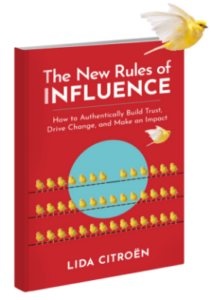Having authored three published books (with a fourth in the hopper) and hundreds of articles, I’m often asked how it’s so easy for me to write. Is it a natural talent? A skill I developed over time? Is it a craft that I’ve honed? What does it take to turn ideas or thoughts into written word? Here’s what I think:
#1 Ability

I do believe some element of talent is helpful to be a good writer. If creating a flow of thoughts and ideas from your brain to your heart to your fingertips is not intimidating, and the ideas you present make sense, congratulations – you have the gift! When I’m struck with an idea – perhaps it comes to me as I’m preparing dinner for my family, or driving my car, or trying to fall asleep – I try to capture it in bullet points or notes. Later, I’ll sit down (if I’m still inspired and motivated) and craft it into an article, blog, or social media post. When I follow this process, the ideas and content flows, often in a beautifully organized format as if I’d created the outline of ideas first (I typically don’t).
For others, writing is harder and requires more effort to get going. I know that personally I have more ideas floating around in my brain and “Notes” folder on my iPad than I can reasonably write out in a lifetime. I have colleagues who share they can’t even start – the idea of creating a headline and first paragraph is overwhelming. So, they do nothing. Learning how to take ideas, create outlines, assess the viability of the message, and start writing takes practice and commitment (see below). Everyone can learn this. For some, the process will feel more laborious, for others it unleashes a flood of writing that never ends.
Writing is a skill that can be taught. Working with a mentor, coach, instructor or other partner can smooth the writing process, helping content go from idea to material.
#2 Topic
As important as it is to get an idea out of your head, it’s also crucial to have a worthy idea to explore. Just because you think it would be funny, clever, insightful, or helpful to write on something doesn’t make it interesting and valuable. Most topics, when thoughtfully crafted, can be made to be interesting and valuable, but they don’t emerge that way.
You also must be personally committed to and passionate about the topic. I’ve even noticed in my own writing when I’m not interested in the topic or curious about the outcome of the message, the writing is flat and uninspiring. When I write on a topic that I care about, that I’m committed to sharing, the narrative resonates with the intended audience.
Speaking of commitment to the topic, at times this requires vulnerability. Instead of sugar coating the truth, or softening the harsh reality of the message, sometimes we must be direct and share our truth. Some writers would argue this is the most meaningful kind of writing. I wouldn’t disagree, but there are times this style isn’t practical (for instance if you are crafting an instruction manual for a mechanical operating system.)
Being clear about your understanding of the topic you’re covering, having a truthful view on your feelings about the topic, and having a relevant idea to share are important to being able to write content that grabs the reader.

#3 Audience
Aside from your personal diary, maybe, writing is not all about you. We write for the reader, too. As writers, it is important to know who you’re writing for and what is driving them to read our work. Have a clear picture in your mind of your intended audience. When I wrote my second book, Your Next Mission: A personal branding guide for the military-to-civilian transition, I saw the veteran (man or woman) who was struggling with issues around transitioning, and I helped them. When I write on social media, I’m clear about who I’m writing to, what they are seeking, and how I can help.
When your goal is to inform or educate, you want your reader to learn and become knowledgeable. When your goal is to inspire and motivate, you drive your reader to see new perspectives and grow. If your goal is to drive action with your audience, you’ll state your case and show your readers how to act on your message and make changes.
Your audience has specific needs they will want resolved in order to understanding your writing. They will need to know things (i.e. the writer is credible, has a track record, is verified and vetted) and feel things (i.e. inspired, challenged, supported, informed, motivated). Pay attention to both sets of needs in your writing to ensure your message lands as intended.
Being able to share your thoughts, ideas, stories, insight, and instruction in written form is a gift. Having others read it and find value in your writing is an honor and a privilege. Consider who, when, and why you are choosing to share your gifts, and who you want to honor with the message as you craft your ideas into writing.


